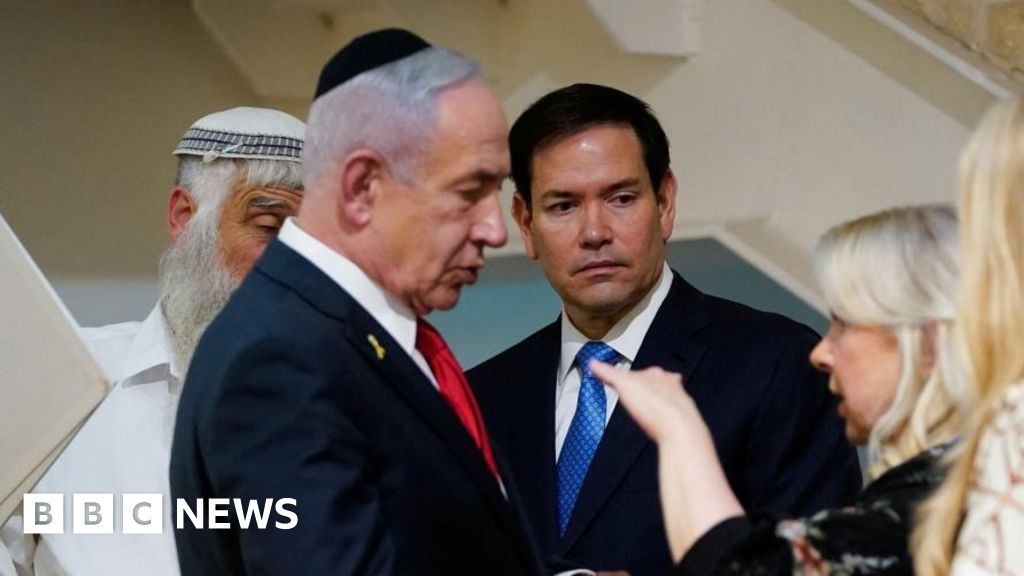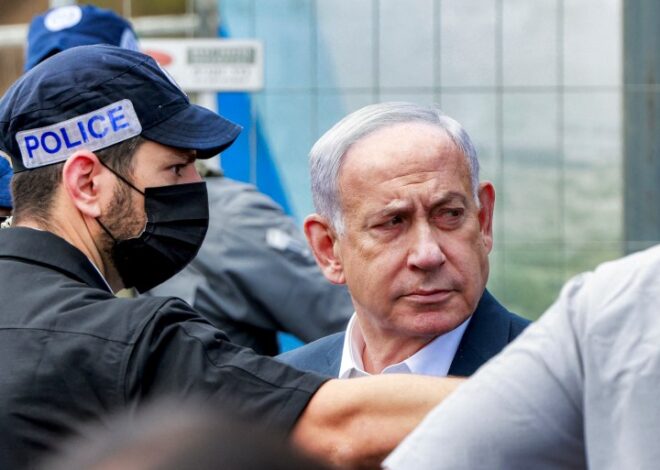
Rubio arrives in Israel as IDF destroys more Gaza City buildings

Rubio Visits Israel Amid Ongoing Conflict in Gaza
Arrival and Context
U.S. Secretary of State Marco Rubio has arrived in Israel to engage in discussions surrounding the ongoing war in Gaza. His visit comes in the wake of Israel’s recent military actions targeting Hamas members in Qatar, an event that has drawn widespread international condemnation. Rubio’s trip aims to address these developments and assess the situation on the ground.
Before departing for Israel, Rubio acknowledged that U.S. President Donald Trump was displeased with the Israeli strikes on Hamas, which is considered a key U.S. ally in the region. Despite this, Rubio emphasized the resilience of the U.S.-Israeli relationship, stating, “Obviously we’re not happy about it, the president was not happy about it. Now we need to move forward and figure out what comes next.”
Ongoing Military Operations in Gaza
Rubio’s visit coincides with intensified military operations by the Israel Defense Forces (IDF) in Gaza City. Israeli forces have been systematically destroying residential buildings, leading to the displacement of thousands of Palestinians as they prepare for a ground offensive aimed at capturing the city. The situation has escalated dramatically, with reports indicating that at least 30 residential buildings were destroyed over the weekend alone.
The IDF has conducted five waves of airstrikes over the past week, targeting over 500 sites, which Israel claims are linked to Hamas operations, including reconnaissance and sniper locations, as well as weapons depots. Footage verified by the BBC showed bombs striking the al-Kawthar tower in Gaza City, further underscoring the severity of the situation.
Humanitarian Crisis
As the military campaign continues, the humanitarian situation in Gaza has become increasingly dire. Local officials have reported that approximately 250,000 Palestinians have fled Gaza City in response to Israeli calls for residents to evacuate southward. However, many remain trapped in the city, with some unable to afford the cost of fleeing and others fearing for their safety in southern Gaza, where airstrikes have also occurred.
Musbah al-Kafarna, a displaced resident of Gaza City, expressed the despair of many in his situation, stating, “The bombardment intensified everywhere and we took down the tents, more than 20 families, we do not know where to go.”
The Hamas-run health ministry in Gaza reported that on Sunday alone, the bodies of 68 individuals killed by Israeli military actions were brought to hospitals. Since the United Nations confirmed a famine in Gaza City on August 22, the health ministry has documented at least 144 deaths attributed to starvation and malnutrition across the territory. While Israel has stated it is expanding efforts to facilitate aid deliveries, it has disputed the health ministry’s figures regarding malnutrition-related fatalities.
Political Ramifications
Rubio’s visit is particularly significant as it follows Israel’s military strike on Hamas members in Qatar, who were reportedly in Doha to discuss a potential ceasefire proposal with U.S. officials. When asked whether the strike complicated Qatar’s willingness to collaborate with the U.S., Rubio noted that Qatar has been a reliable partner in various capacities.
Qatar, which hosts a major U.S. air base, is set to convene an emergency Arab-Islamic summit on Monday to deliberate on the next steps in response to the ongoing conflict. In a statement condemning the Israeli attack, Qatar described it as “cowardly” and a “flagrant violation of international law.” Israeli Prime Minister Benjamin Netanyahu defended the military action, asserting it was “fully justified” as it targeted senior Hamas leaders responsible for the October 7 attacks.
The situation remains complicated by the ongoing hostage crisis, with approximately 48 Israeli hostages currently believed to be held by Hamas in Gaza. Families of the hostages have expressed frustration, claiming that Netanyahu is the “one obstacle” to their loved ones’ return and a potential peace agreement. The Hostages and Missing Families Forum criticized the recent strike on Qatar, suggesting it undermined efforts to reach a deal.
International Response
Netanyahu’s strategy to occupy Gaza City has faced substantial international criticism, with the United Nations warning that further military escalation in a region already suffering from famine will exacerbate the humanitarian disaster. The UN’s concerns highlight the urgent need for a resolution to the conflict, as the civilian population bears the brunt of the violence.
As the war continues, the toll on both sides remains staggering. The Israeli military launched its campaign in Gaza following a Hamas-led attack on southern Israel on October 7, which resulted in approximately 1,200 Israeli fatalities and the abduction of 251 individuals. Since the onset of the military operations, the Hamas-run health ministry in Gaza reports that at least 64,871 people have been killed in Israeli attacks, underscoring the devastating impact of the conflict.
Key Facts
– U.S. Secretary of State Marco Rubio has arrived in Israel to discuss the Gaza war.
– Israel’s recent strikes on Hamas in Qatar have drawn international condemnation.
– The IDF has destroyed over 30 residential buildings in Gaza City, with ongoing airstrikes targeting Hamas sites.
– Approximately 250,000 Palestinians have fled Gaza City, but many remain trapped.
– The Hamas-run health ministry reports at least 64,871 deaths in Gaza since the start of the Israeli military campaign.
– Qatar will host an emergency Arab-Islamic summit to discuss the conflict.
Source: www.bbc.com


